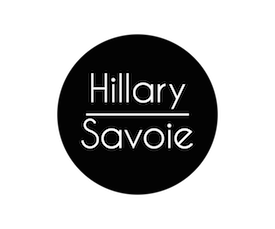I few days ago I came across a photo that was being shared pretty widely among the special needs parenting community on Facebook. It was a picture of a young couple and their new baby. The caption to the picture explained that the young mother has Down Syndrome and the father a “slight mental delay.” It also reported that their baby girl was born with no apparent intellectual impairment.
The photo is beautiful. The parents look proud and happy; their baby looks healthy and adorable. However, when I saw it, I started sobbing.
Things like this happen to me now and then…it feels as if a switch gets flipped in me and there is a deluge of emotion. And, just as quickly, I stop–suddenly emotion-less with only a searing headache to remind me of what just happened.
The experience is fundamentally different than the one I get when I find myself a bit choked up talking to a friend–when my eyes might tear up some or I might even full-on cry. It makes sense to cry in those instances…I’m prepared, both for the tears and to rein them back in.
But the type of cry I had when I saw this photo is the releasing of a deep sorrow. There is no controlling it. So I cried…and cried…and then moved on, head pounding.
As I write this I am trying to get to the heart what it was, exactly, that got to me about that photo. Each emotional thread I pull on seems inevitably linked to another. I have written before about how I see parenting as coming terms with the reality of a child as a person rather than a set of possibilities that we assign to them (My Real Child, Milestones)–and that in parenting a child who has special needs the process of coming to terms just has to happen so much faster. For instance, obviously not every adult will get married or have children, but I think you might be hard pressed to find an expectant or new parent that doesn’t, on some level, dream of their child’s future–being with a loving partner, experiencing the unconditional love that comes with having their own child. I know that while I was pregnant I thought about my daughter growing into a woman and having her own child. I tried to record my experiences carefully so I could guide her in the future.
It occurred to me that she might not want to have children–but I never considered that it might not be an option. Just like I never considered that she might not walk or talk. Just like I never considered that she might have epilepsy or be fed by a tube or come so close to dying.
I just assumed she could have whatever future she wanted. I assumed that my job as her parent would be to help her pursue a life that would be independent of me…that she would have the choice to go to college, have a career, fall in love, and travel far away from home….
Ever since it became clear that Esmé’s future would remain uncertain I have tried not to think about the questions of what kind of adult life she might lead…because it takes me down a neurotic rabbit hole. But this photo raised the question of her future for me: Could this be possible for Esmé? Might Esmé be able to have a husband? A child? Would her child be healthy? And what would that mean for her–or for us as a family? But more than that, it reminded me that these questions have to exist at all.
On the one hand I am so lucky that I can still see this possibility for my daughter. We are fortunate that Esmé is alive, thriving even, and defying odds daily. On the other hand I mourn the fact that it this future seems like it would be nothing short of miraculous. And I mourn that I have to wonder what that future would look like.
I know that my daughter is destined for amazing thing. She shines her light in the world so brilliantly that people around her cannot help but be changed by her. Already she is a trailblazing hero. And I believe that Esmé is absolutely perfect at being Esmé. But being her mother is beyond a doubt the most important and wonderful thing I have done with my life, and it saddens me that she might not be able to share that experience…that she might never turn to me with a baby in her arms and ask “Ma, is it possible you loved me this much? Really? Because I feel like my heart can’t handle how much I love this child.”
But more than that–and I think I have just realized why I was crying (because I’ve started again)–more than that, what seems intolerable to me, is the idea that she might see her peers have that experience and want it, but be unable to have it.

